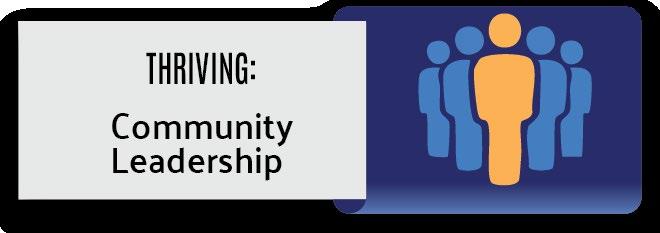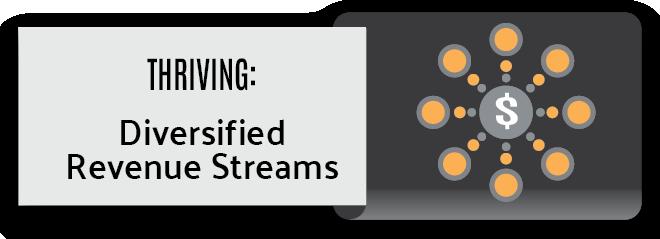2026-28

At United Way of Asheville and Buncombe County (UWABC), we believe that bold collaboration and ambitious goals lead to lasting change. Our 2026-28 strategic plan— developed by a committee of UWABC staff and board members with input from key stakeholders—reflects this belief and charts our course for becoming a thriving United Way.
Over the next three years, UWABC will deepen cross-sector collaboration and community engagement across two core impact areas: Youth Opportunity and Community Resiliency. We will build a shared evaluation framework that clearly shows how our investments drive measurable results. We will develop our capacity to effect meaningful and lasting change through non-partisan approaches to public policy advocacy. We will achieve long-term financial sustainability by leveraging our impact and by building new—and bolstering time-tested— relationships. And we will foster a thriving organizational culture that attracts, retains and inspires our region’s most talented and committed nonprofit professionals. Together, these goals will strengthen our foundation and amplify our collective impact. Thank you for joining us!
United Is The Way,
Dan Leroy President and CEO
VISION
A united and resilient community where everyone belongs and everyone thrives.
MISSION
We bring people, partners, and resources together to improve lives and tackle our community’s toughest challenges.
IMPACT AREAS
YOUTH OPPORTUNITY
Every child deserves the chance to reach their full potential. United Way is committed to working with community partners to clear the path to success, from early childhood through college and career. We do this through:
• Community Schools - creating hubs of support at 9 area public schools to support youth and their families.
• United for Youth - a cross-sector, cradleto-career community partnership forged between our public schools, health, social service, higher education, and youth services community partners.
COMMUNITY RESILIENCY
We’ve seen firsthand how critical it is to have an infrastructure in place that can be mobilized when disaster strikes. From raising funds to rallying volunteers, we are moving our community to action, from the moment a crisis strikes through long-term recovery.

GOAL one
STRENGTHEN cross-sector collaboration in Community Schools (CS), United for Youth (U4Y), and Helene recovery while expanding opportunities for diverse community stakeholders to be involved.
STRATEGIES
• Convene regular engagement opportunities to strengthen cross-sector collaboration, include diverse voices, and celebrate our collective work.
• Foster stronger and more intentional connections between CS resource teams, U4Y partners, and other community stakeholders to maximize our collective impact.
• Ensure volunteer engagement opportunities are expansive and fully aligned with our Impact Areas.

GOAL two
CREATE an evaluation framework, informed by our key partners, that clearly demonstrates the results of UWABC investments and impact strategies.
STRATEGIES
• Work collaboratively with key partners to clearly define the desired outcomes of UWABC investments and impact strategies at the community, organizational, and program levels.
• Establish and maintain a comprehensive inventory of UWABC’s existing data sources related to
investment and impact strategies to identify gaps and opportunities for data integration.
• Establish and maintain a public-facing dashboard that clearly communicates and amplifies the results of UWABC investments and impact strategies, including those of our partners.
GOAL three
DEVELOP the organizational capacity, culture, and infrastructure needed to advocate effectively for public policies that advance our work.
STRATEGIES
• Develop the systems and supports needed to engage the UWABC board in policy advocacy leadership.
• Build public policy advocacy capacity through staff development, strategic role alignment, and expanded staffing where needed.
• Network with local and state-level elected officials, organizations, and coalitions to build relationships that foster effective policy advocacy.

GOAL four
ACHIEVE a balanced revenue portfolio by leveraging our results, reputation, and strategic partnerships to drive long-term financial sustainability.
STRATEGIES
• Develop a comprehensive business engagement strategy that includes fee-for-service offerings, immersive service opportunities, and a robust investment portfolio encompassing workplace campaigns, sponsorships corporate giving, and underwriting.
• Grow major gifts by strengthening donor relationships through personalized engagement, impact-driven storytelling and tailored giving opportunities.
• Pursue joint funding and investment opportunities with strategic partners, leveraging shared expertise and resources to increase funding and community impact.
• Utilize our building to generate diverse revenue streams by developing a comprehensive plan that explores creative and non-traditional building usage aligned with our vision, mission, and impact areas.

GOAL
five
FOSTER an organizational culture that reflects our guiding principles, ensures that staff feel connected to our mission, and demonstrates our commitment to a healthy, well-supported staff.
STRATEGIES
• Develop and maintain a staffing model and compensation strategy that ensures transparency and adequate capacity, supports staff well-being and growth, recognizes the demands of both inside and outside work, and strengthens long-term commitment to our mission.
• Create consistent opportunities to bring staff together across departments in ways that build trust, foster cross-departmental collaboration, deepen connection to the mission and one another, and cultivate a culture of shared purpose, mutual appreciation, celebration, and fun.
ABOUT OUR STRATEGIC PLAN
Each GOAL and its STRATEGIES are organized under a corresponding graphic and Focus Area.
These Focus Areas are part of the “Thriving United Way Framework,” developed by United Way Worldwide to strengthen the collective impact of over 1,100 local United Ways. This framework is designed to help us assess our strengths, challenge ourselves, and grow.
It’s one more way our global network supports us locally.
For years, we’ve benefited from being part of a national network committed to implementing Community Schools. Local principals gain insight from peers across the country, and teams share resources, lessons learned, and technical support that strengthens our work here. Most importantly, students and families benefit from knowing their community stands behind them.
During Helene, this network showed up. United Ways that had faced similar disasters offered guidance and support. United Way Worldwide connected us with critical partners, national media, and raised critical funds, as did our partners at United Way of NC.
Founded over a century ago by local residents, our work is deeply rooted in Buncombe County. In the wake of Helene, we were powerfully reminded of the value of belonging to a global network committed to helping all communities thrive.
This connection not only strengthens our own community, it reveals how our efforts contribute to the resilience and collective power of communities nationwide.
THANK YOU TO OUR STRATEGIC PLANNING COMMITTEE
Board
• Sheila Christofalos
• Valene Fagan
• Heather Goldstein
• Himanshu Karvir
• Zo Mpofu
• Susanne Swanger
• Maui Vang
• David Worley
Staff
• Elisabeth Bocklet
• Lance Edwards
• Kyle Garrett
• Denise Gonzalez
• Jo Jamison
• April Lambert
• Dan Leroy
• Kevin Montgomery
• Sarah Roth
• Aisha Shepherd
• Josh Wells
Special Thanks
John Emge, Sr.

